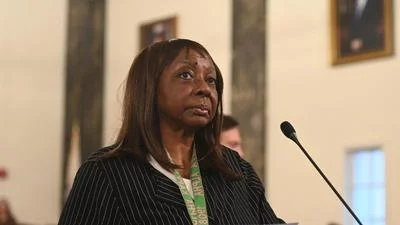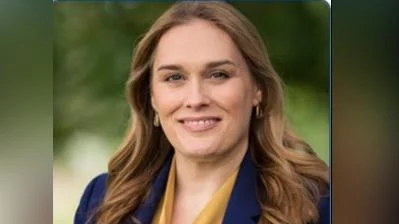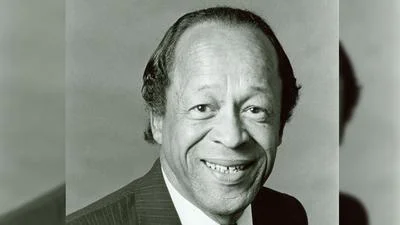Illinois Governor's Office issued the following announcement on Aug. 21.
Governor JB Pritzker today announced eight principles that will serve as a foundation to begin transitioning Illinois to a clean energy economy. Building upon the progress Illinois has made as a leader in fighting climate change, the Governor is committed to supporting Illinois' communities as the state moves toward a clean energy future, while ensuring future legislation holds utility companies accountable to ratepayers. The Governor's principles focus on substantially increasing utility accountability and transparency, creating new clean energy jobs in Illinois, reducing harmful emissions and maintaining low energy costs for consumers and industrial users.
"When it comes to clean energy innovation, Illinois is a leader in the Midwest, and by working together we can build on that progress to protect consumers and the climate," said Governor Pritzker. "With these principles as a starting point, we will ensure any legislation on energy includes robust consumer protections as we work to increase transparency and restore the public's faith in this process. I will be an advocate for ratepayers, so they know they will finally have a seat at the table. These principles represent guideposts for crafting a legislative proposal that puts consumers and climate first, and I look forward to working with our legislative partners, advocacy groups, and other concerned citizens to bring this effort home."
Governor Pritzker believes that energy legislation passed in Springfield should center around eight key principles:
1. Strengthen Utility Company Transparency and Ethics Requirements
2. Expand Consumer Affordability Protections
3. Make Illinois a Renewable Energy Leader and Phase Out Dirty Power
4. Implement a Market-Based Solution That Supports Clean Power and Clean Air
5. Electrify and Decarbonize Illinois' Transportation Sector
6. Support Communities Transitioning to Clean Energy
7. Advance Equity in the Growing Clean Energy Economy
8. Enhance Energy Efficiency in Illinois
The administration intends to reconvene working groups to focus on these principles as the foundation to achieve meaningful and comprehensive energy reform.
"The Illinois Clean Jobs Coalition is pleased that Governor Pritzker has affirmed the urgency of passing bold climate legislation this fall that brings justice and investment to communities that have borne the worst of fossil fuel pollution," said Colleen Smith, Illinois Clean Jobs Coalition. "We look forward to working with the Governor on passing a bill that holds utilities accountable, ends automatic rate hikes, and creates thousands of clean energy jobs that help rebuild communities of color and lead a statewide economic recovery. We can do this together without raising electricity rates, hiking taxes, or giving Exelon or fossil fuels a bailout. Combating climate change can't wait, building equity and economic recovery can't wait."
"Governor Pritzker recognizes the critical role that solar, storage and wind play in building Illinois' economy, protecting consumers and creating a safer and more equitable future for our state. We are grateful for his leadership and look forward to working with the Governor, legislative leaders and other stakeholders to put these clean energy principles into practice," said Nakhia Morrissette, spokesperson for the Path to 100 Coalition and Central Region Director for the Solar Energy Industries Association. "With smart policies in place, we will create thousands more good paying jobs, accelerate our efforts to build a more diverse and equitable workforce and move Illinois forward on the path to 100% clean energy."
"Done right, energy legislation can have massive impacts on Illinois: creating good-paying clean energy jobs, protecting the state from the worst impacts of climate change, and powering an equitable economic recovery," said J.C. Kibbey, Illinois Clean Energy Advocate, Natural Resources Defense Council. "Any legislation must also prioritize health and economic development for environmental justice communities and bring accountability to big energy companies. The principles laid out by the Pritzker Administration are a good start."
"The solar industry is creating good union jobs across the state today, and with leadership from Governor Pritzker, we can make sure those benefits continue," said Brian Haug, President of the Illinois Solar Energy Association. "We look forward to working with the Pritzker administration and the General Assembly to expanding the benefits of renewable energy across Illinois."
"Borrego Solar Systems thanks Governor Pritzker for his commitment to Illinois' renewable energy future. Our 40 permanent, full-time employees, the many hundreds of employees we've supported through the development and construction of community solar projects, and the thousands of subscribers that will save money on their electric bills all look forward to a bright future in Illinois," said Sarah Wochos, Director of Policy & Business Development - Midwest, Borrego Solar. "Illinois has come a long way in the past few years, but Governor Pritzker correctly identifies the need to make some big changes to our policies to continue that trend. We look forward to working hand in hand with his administration to achieve this goal."
"Illinoisans should never have to choose between clean energy and clean government. Invenergy congratulates Governor Pritzker's leadership, setting Illinois on this new path forward," said Michael Polsky, Founder & CEO of Invenergy. "Illinois' energy future will be defined by flexible, cost-effective, and clean energy technology without outdated structural barriers. As the state's largest privately held sustainable energy solutions provider, Invenergy looks forward to partnering with the state in realizing this future."
Strengthen Utility Company Transparency and Ethics Requirements
Governor Pritzker remains committed to strengthening transparency and ethics laws. Implementing stringent transparency requirements will help hold utility companies accountable to the ratepayers they serve. The Governor supports prohibiting utility companies from recovering charitable contributions, which are often used to increase their political power at ratepayers' expense. Additionally, requiring fuller disclosure of interactions between public utility companies and Illinois Commerce Commission (ICC) commissioners will ensure ratepayers and the public have clearer access to the information they need.
The Governor supports authorizing the ICC to implement an integrated distribution planning (IDP) requirement and begin a process on Performance Incentive Mechanisms. These processes will help the state meet its goals and ensure utilities' rates match their performance.
Expand Consumer Affordability Protections
As a result of the ongoing COVID-19 pandemic, more Illinoisans are working from home and depend on reliable power. Illinois must expand consumer protections to meet the demand, and support and protect middle and low-income ratepayers. The Governor therefore proposes providing more resources to consumers so that they can afford to pay their utility bills.
To directly assist low-income households, the Governor supports an increase in ComEd's and Ameren's annual commitment to low-income energy efficiency programs, while also ending both the customer deposit requirement and late fees for low-income utility residential customers, as well as the online payment fee for utility bills.
To ensure more customers stay connected, the Governor supports requiring utility companies to report monthly to the ICC the number of shutoffs and reconnections. This will help the ICC understand how many customers are experiencing shutoffs and reconnections and what improvements need to be made.
Make Illinois a Renewable Energy Leader and Phase Out Dirty Power
To expand Illinois' renewable energy industry, the Governor supports enacting changes to the Public Utilities Act and the Illinois Power Agency Act. Implementing structural changes will incentivize the development of renewable energy by sending a market signal that Illinois intends to lead the nation in the development of renewable resources. These principles will help put Illinois on a path toward 100% clean energy by the administration's goal of 2050.
The administration proposes to invest in Illinois' communities by recognizing the value of community-based solar projects. The framework proposed by the Governor's principles will forge pathways for both large-scale, cost-effective community solar projects and smaller-scale, community-based projects.
Implement a Market-Based Solution That Supports Clean Power and Clean Air
To accomplish Illinois' clean energy goals, the Governor supports establishing a market-based system that reduces carbon emissions from the power sector. This will provide substantial health benefits to Illinoisans by reducing production of carbon emitting resources while ensuring protections for ratepayers.
The Fixed Resource Requirement (FRR) proposal set out in current legislative proposals, where Illinois would pull out of PJM's capacity market to run a statewide capacity market does not seem to accomplish our goals. The proposed FRR has been the centerpiece of current energy discussions, but the first step in that FRR is to annually pay each of Exelon's nuclear plants an amount equal to three times the current taxpayer subsidy that two Exelon plants already receive without any strings attached and without Exelon showing us their math as to why this is necessary. The better approach is to explore all means to set up a clean energy framework, and to compare their costs and benefits. FRR is not the only option.
Electrify and Decarbonize Illinois' Transportation Sector
Investments in transportation electrification will make Illinois the best state in the country to manufacture and drive an electric vehicle. The Governor supports increasing the adoption of electric vehicles in the State to 750,000 by 2030. Setting an ambitious goal for the growth of electric vehicles will help put tens of thousands of new and used electric vehicles on the roads annually, while creating thousands of good, living wage jobs in communities across the state.
The administration also supports establishing a tax credit and other incentives for electric vehicle companies and charging station manufacturers that locate downstate or in a disproportionately impacted areas, to ensure there is equity of opportunity in the transportation sector of the emerging clean energy economy.
Support Communities Transitioning to Clean Energy
Transitioning to a clean energy economy can have disruptive impacts on communities and requires consideration of resources to assist those communities during the conversion. The administration believes it is imperative that the state and stakeholders work alongside community organizations, local municipalities, and groups representing workers to ensure they have financial and planning support available throughout a transition process.
As a part of those efforts, the Governor supports engaging local governments in community energy and climate planning and creating a displaced worker bill of rights to provide state support to transitioning communities and displaced energy sector workers.
Advance Equity in the Growing Clean Energy Economy
As the state transitions to a clean energy future, it is critical that the new economy reflects the diversity of the State of Illinois. In order to build on those efforts, the Governor supports incentivizing renewable energy developers to contract with diverse suppliers, as well as modifying IPA's procurement process to include equity actions for Renewable Energy Credits (RECs), the Adjustable Block Program, the community renewable generation program, and Solar for All.
The Governor also supports other measures that would streamline and diversify multiple industry pipelines, such as ownership of energy development companies and leadership in the C-suites, corporate boards, and the workforce. The Governor's Office will seek additional ideas through the working group process to further diversify these burgeoning industries.
Enhance Energy Efficiency in Illinois
Illinois will be a leader in energy efficiency efforts, and that begins by supporting existing energy efficiency programs. Illinois will renew its efforts to reduce emissions by lowering energy usage in residential, commercial, and industrial contexts, while simultaneously working to reduce emissions by producing more clean energy.
The Governor's principles explore ways to increase funding for programs that provide weatherization dollars to low income households. Recognizing the need to partner with the business community to reduce emissions, the framework would allow Combined Heat and Power (CHP) and other industrial decarbonization programs to be included in utility energy efficiency programs, and encourages partnership with industries that are attempting to decarbonize high carbon emitting industrial sectors, such as steel, cement, refining, and chemical manufacturing.
The administration also believes it is important that the state work with Illinois communities and local leaders on reviewing and updating statewide building codes and exploring statewide code enhancements so that municipalities looking to promote efficiency are not at a competitive disadvantage relative to their peers.
Original source can be found here.





 Alerts Sign-up
Alerts Sign-up